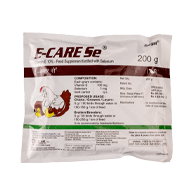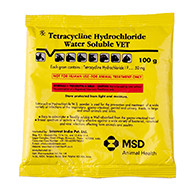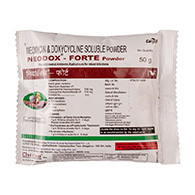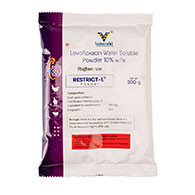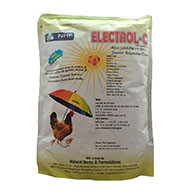-
Rs311.23
Rs563.00 -
Rs84.00
Rs105.00 -
Rs127.97
Rs182.82 -
Rs152.72
Rs169.69 -
Rs335.18
Rs480.00 -
Rs150.80
Rs290.00
Reviews & Ratings
- Protease: Enzyme derived from microbial sources (e.g., Bacillus species).
- Amylase: Derived from fungi or bacterial sources, often Aspergillus or Bacillus.
- Cellulase: Produced by microbial fermentation, often sourced from Trichoderma or Aspergillus.
- Lipase: Enzyme derived from microbial or animal sources, used for fat digestion.
- Phytase: Enzyme sourced from fungi or bacteria, enhancing phosphorus availability in plant-based feeds.
- Xylanase: Derived from microbial fermentation, typically from Aspergillus or Trichoderma.
- Beta-glucanase: Derived from fungal sources like Trichoderma or Aspergillus.
You might also like
Product Queries (0)
Login Or Registerto submit your questions to seller
Other Questions
No none asked to seller yet
-
Rs311.23
Rs563.00 -
Rs84.00
Rs105.00 -
Rs127.97
Rs182.82 -
Rs152.72
Rs169.69 -
Rs335.18
Rs480.00 -
Rs150.80
Rs290.00
PrraniGanga.com | India’s 1st Livestock Products Marketplace
PrraniGanga.com | India’s 1st Livestock Products Marketplace
Welcome to PrraniGanga.com
India’s first dedicated marketplace for livestock farmers, sellers, vendors, and manufacturers. Our platform offers a complete range of livestock feeds, medicines, supplements, and equipment—bringing modern, reliable solutions to the industry.
Transforming Livestock Farming
With technology driving rapid change, PrraniGanga stands as a pioneer in simplifying access to livestock essentials. By creating a unified hub, we make procurement faster, easier, and more efficient for everyone in the livestock ecosystem.
A One-Stop Solution for Farmers
Farmers often face challenges with fragmented supply chains and delays. PrraniGanga bridges this gap by offering a seamless digital platform where high-quality products are available at their fingertips, tailored to livestock needs.
Comprehensive Product Range
PrraniGanga brings together everything a livestock farmer requires—nutritious and high-quality feeds to ensure better health and productivity, reliable medicines for prevention and treatment, innovative supplements that boost growth, strength, and immunity, and modern equipment designed to make livestock management more efficient. By consolidating all these essentials in one place, we empower farmers with both convenience and confidence.


